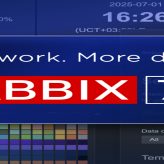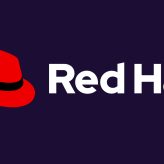

Why should we look for our “WHY?”
28. 4. 2023
Over the last period, I have been getting a lot of phone calls and emails from people who want to increase their qualifications or not lose their jobs thanks to the state subsidies for education. Since we are specialists in the field of education and the vision of our founder is “Better to advise well than to sell badly”, we focus first of all on analysing the requirements and motivating the people who approach us for help.
After listening to the other party’s requirements, the first question that logically arises for me starts with the word WHY? What is the motivation for choosing the training, what is the purpose we are pursuing and what is the goal of the selection. And at this point comes the aha moment that brings a lot more light into all of this.
That is, by default, we assume we know. We have information and knowledge about what we want. Our behavior is influenced by our judgments, or our perception of the truth, and we make decisions based on that. However, we know that not all decisions turn out well.
So how can we guarantee that our decisions will produce the best results for reasons that are completely within our control? Logic says that the key factors are the amount of information and data we get. However, we’ve all been in situations where, even though we had the data available and got all the good advice, something went wrong.
We understand that even in the mass of data and good advice, one small detail is likely to get lost that makes things not go as we would expect. That’s when we revisit sources of information and perhaps look for new ones. There may be other factors to consider that lie outside our rational, information-hungry brains.
Every instruction, procedure or piece of advice we give, the outcome we wish to achieve, begins with the same thing: a decision. Deciding which direction I want to take and what goal it will help me get closer to.
In education, in general, it’s a long run. The expected outcome (whether in the form of a pay rise, a promotion, an increase in qualifications, being a specialist in the field) doesn’t come immediately. It is a process of gathering information, analyzing data, accepting responsibility built on a decision. It’s a marathon where shortcuts don’t exist.
It is not possible to be someone else for a week. You gain experience and expertise that takes years to acquire. To be the top in your field. That chec more than one training. It takes desire. The decision that this direction is my path and to devote my time, energy and money into the education, the practice. No crash course will help you.
The great news is that you have decided to do something about it. Whether with the support of an education grant or by investing your own resources. That decision has been made. So if you’re standing at a crossroads of educating yourself, reflect on these few thoughts. Maybe they will help you make a decision that is in alignment with your setting and true wanting. And importantly, make it achievable within the expectations you have.
Answer the question Why?
Seek the answer and it will find its way to you. It will help you transcend yourself and be yourself. Trust yourself. And then make a list of the HOW and WHAT you will do to prove your WHY. This applies to every field and learning is a never ending process. So let’s take our time deciding what we want to devote our time and energy to.
Nothing in the world will bring you more joy and happiness than when you wake up in the morning with the idea of answering the WHY. And keep coming back to that answer. If you need help defining your WHY, feel free to contact me.

Anna Beňadiková, Operations Manager, EDU Trainings
anna.benadikova@edutrainings.cz


